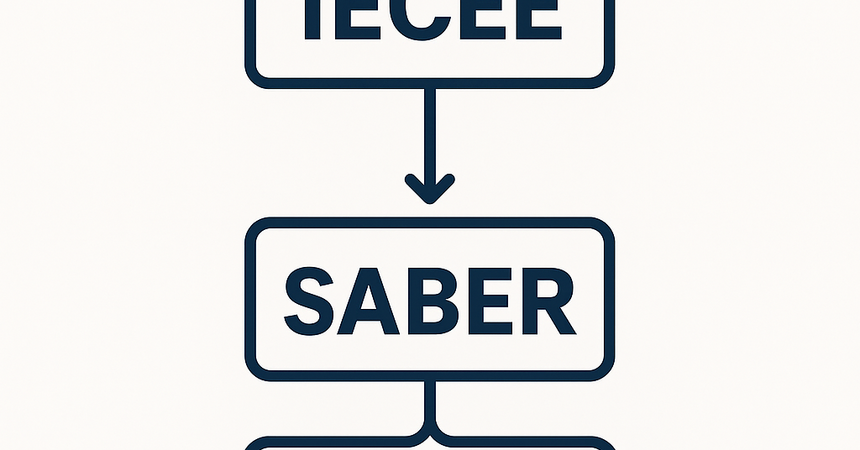When planning to export products to Saudi Arabia, companies often encounter two key terms: the IECEE certificate and the SABER certificate. Although both documents are essential for importing and selling goods in the Kingdom, they serve different purposes, have different issuance procedures, and apply to different product categories.
So how can you determine which certificate is required for your product? In this article, we’ll walk through the process step by step to help you avoid mistakes and delays when entering the market.
What is the IECEE Certificate?
DefinitionThe IECEE Certificate (also known as the CB Certificate) is an international certificate of conformity issued under the CB Scheme (Certification Bodies Scheme), which is managed by the International Electrotechnical Commission (IEC).
This certificate confirms that a product complies with IEC safety and quality standards. In Saudi Arabia, it is mandatory for certain product categories — primarily electrical and electronic equipment.
Examples of products requiring IECEE:
- Household electrical appliances (kettles, irons, hairdryers, etc.)
- Chargers and adapters
- Power supply units
- Lighting equipment
- Laptops, tablets, and other small electronics
What is the SABER Certificate?
DefinitionSABER is an online platform developed by SASO (Saudi Standards, Metrology and Quality Organization) for registering and certifying all types of products imported into Saudi Arabia.
There are two main types of certificates issued through SABER:
- Product Certificate of Conformity (PCoC) – valid for 1 year
- Shipment Certificate of Conformity (Shipment CoC) – issued for each shipment
How IECEE and SABER Are Related
For certain electrical and electronic products, obtaining an IECEE Certificate is a prerequisite before registering on the SABER platform. This is a legal requirement under Saudi technical regulations.Here’s the step-by-step process:
- Obtain the IECEE CB Certificate for the product.
- Register the product in the SABER system, uploading the IECEE certificate as proof of conformity.
- Obtain the PCoC in SABER.
- For each shipment, obtain a Shipment CoC in SABER.
How to Determine Which Certificate Your Product Needs
Step 1: Identify the product categoryClarify which group your product belongs to:
- High-risk electrical or electronic devices?
- General industrial products?
- Mechanical components?
SASO regularly updates the list of products requiring IECEE certification. This typically includes:
- Home appliances
- Lighting equipment
- Laboratory instruments
- Power supply units
- Some batteries and rechargeable cells
Step 3: Check for a technical regulation in SABER
If your product falls under a regulated category, the SABER system will automatically require supporting documents — including the IECEE Certificate, if applicable.Step 4: Consult an accredited certification body
Even with all documents in hand, mistakes can happen. To avoid delays and financial losses, it's best to consult a certification body or a professional service provider that handles product registration and compliance.Common Mistakes When Choosing a Certificate
- Attempting to get only the SABER certificate without the IECEE Certificate — often results in application rejection.
- Using outdated IECEE certificates — some companies upload expired CB Certificates.
- Failing to correctly link certificates to product models/SKUs — this can lead to registration refusal for an entire shipment.
Conclusion
Understanding whether your product needs an IECEE Certificate is essential to avoid fines, customs delays, and unnecessary costs. In most cases, electrical and electronic products require an IECEE CB Certificate before applying for a PCoC in SABER.WorldWideBridge supports clients at every stage:
- We verify the product category.
- We assist in obtaining the IECEE Certificate quickly.
- We prepare all required SABER documentation.
- We handle the registration and certification process for every shipment.
